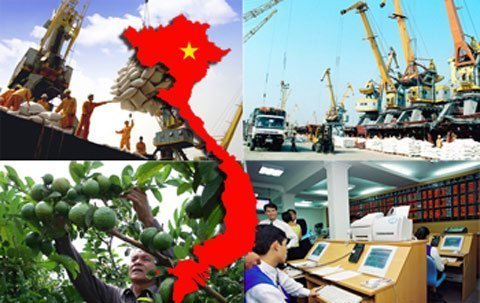|
|
| HSBC: Vietnam to benefit from FDI migration |
1/29/2013 10:32:01 AM
Vietnam, India and Indonesia stand to benefit most from the foreign direct investment (FDI) migration as they have large labour forces and strong domestic markets, said the Hong Kong-Shanghai Banking Corporation (HSBC) in its latest report.
The HSBC survey, entitled "The Great Migration”, launched on January 10, showed that for 20 years, China has been the major recipient of FDI in the developing world. But rising costs from higher wages and currency appreciation are seeing multinationals look to expand elsewhere.
According to HSBC, recently, much of investment from Japan has been routed towards ASEAN countries such as Thailand , Indonesia and Vietnam to diversify risks away from China. This could have profound implications for those countries should they implement policy to extract the benefits on offer.
"But this is not just about Japan. Companies from many other countries are responsible for the movement of manufacturing production out of China as they look for cheaper pastures. India is an obvious destination as it has a similar size population”, said the survey.
ASEAN countries such as Thailand, Malaysia, Indonesia, the Philippines and Vietnam, while not comparable in size, continue to offer opportunities to investors as they also have a good demographic story to tell.
The survey indicated that the Philippines and Vietnam are two other countries with a large labour supply and market big enough to sustain robust domestic demand. Vietnam targets manufacturing FDI through policy and incentives much more aggressively than the Philippines . Should its income continue to rise, Vietnam is believed to become an increasingly attractive destination for investors.
Relative to GDP, Vietnam attracts the second most FDI in ASEAN after Singapore. This is because its wages are the cheapest among major ASEAN countries and its business environment is more competitive than India, the Philippines and Indonesia , although it still trails significantly behind Thailand and Malaysia.
The rapid increase in Japanese involvement in Vietnam is considered positive for future productivity and growth in manufacturing. In 2011, Japanese FDI made up 25 percent of total inflows into Vietnam, and in the 2012 January-October period, this had risen to 58 percent.
The survey suggests that should Vietnam keep improving its economic framework FDI is likely to accelerate. Areas of concern include infrastructure, access to raw materials, customs duties, administrative procedures, corruption and intermediary goods for production.
Even in the current environment, many Japanese firms are flocking to Vietnam to reduce costs and expand their production base, it said.
According to the survey, with the government making macro-economic stability a bigger priority than rapid growth, there’s hope that more progress can be made. In the coming decade, as production costs rise in China and Thailand, Vietnam looks well positioned to fill the gap and move up the value chain.
|
| HSBC / VVNS |
| |

